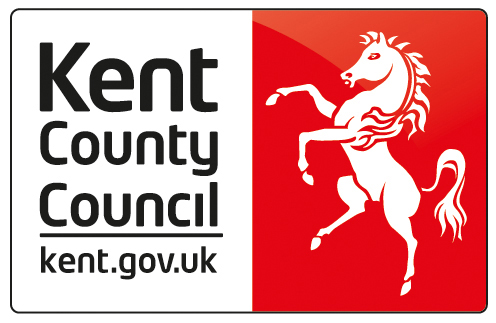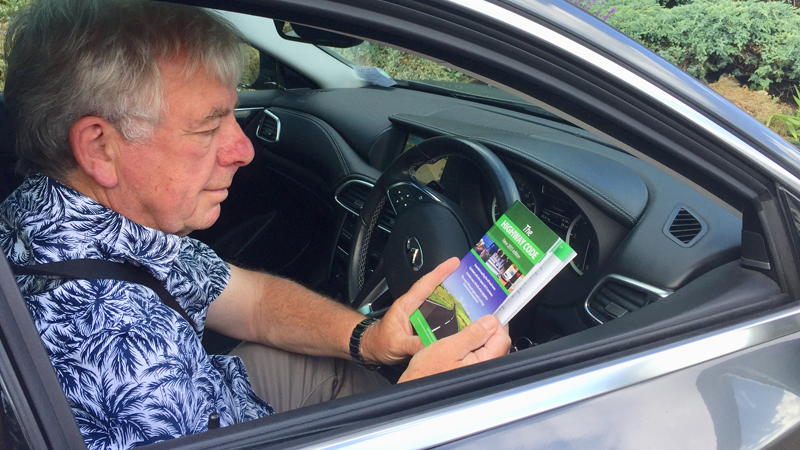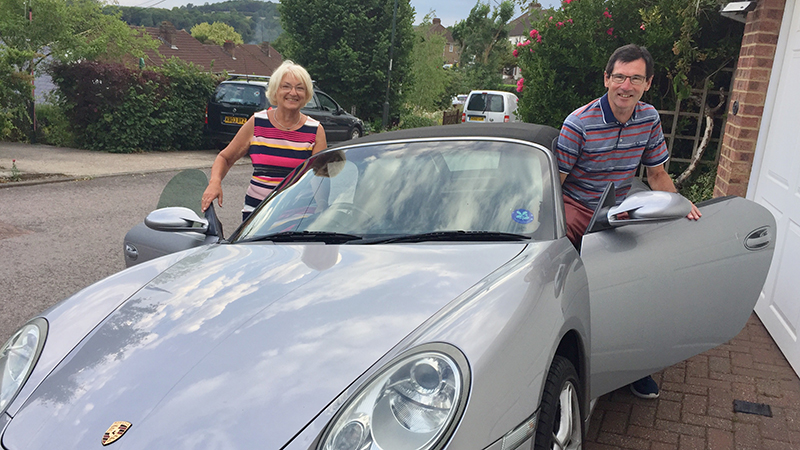GO AD FREE | Get your Digital Subscription for only 50p a week! Use code SUMMER
GET STARTEDMore on KentOnline
GO AD FREE | Get your Digital Subscription for only 50p a week! Use code SUMMER
GET STARTEDMore on KentOnline


Our work in road safety Education, Training and Publicity aims to contribute to and achieve reductions of people killed and seriously injured on Kent’s roads. There is an emerging trend in road casualties involving people aged 65 and over.
Please visit kentroadsafety.info/road-user-types/mature-drivers where you will find useful advice, tips and several short video clips. Subjects include:
Breaking down is something most drivers fear. Always carry an emergency breakdown pack in your vehicle containing at least a high visibility jacket and a drink. Read the tips on our website. Here are just a few of them:
If you breakdown on the motorway there are additional things to consider
Please remember it is your responsibility to make sure all your details are up-to-date and correctly displayed on your driving licence. This includes your photo image on your new style photo card driving licence.

This can affect mobility, physical strength, motor skills and co-ordination, and you need to understand your limitations. A stiffness in the neck can make looking over your shoulder difficult to change lanes, or looking right and left at junctions, or reversing.
This can result in slower response time; memory loss and confusion and medical advice should be taken.
9% of the adult population with Type 2 diabetes will develop Peripheral Neuropathy which is the inability to feel and push the pedals underfoot, and how far they are pushed down. This means it could be difficult to control the accelerator and brake. However, it may be possible to reverse or retrain, or if this is not possible, install hand controls in the car.
IIf you have a seizure of any kind, stop driving, speak to your Doctor and inform the DVLA, who will then give you the advice you need before you can resume driving.
Please beware of new medications which may give you strange symptoms. In this case, stop driving and seek the advice of your doctor. Certain cold and flu remedies can also cause sleepiness so doses may need to be adjusted.
You need to have good vision to drive, so get your eyes checked out at an Opticians at least every 2 years, and in some cases a yearly check is advised. And for Over 60s it’s FREE!
Cataracts, glaucoma and macular degeneration can affect your eyesight so it’s very important to keep up your appointments.
Did you know you need to be able to read a number plate in good light at a distance of 20M. Check this out at home if you feel unsure.
We all know its Law we must wear our seat belts, The fine for not wearing one is £100. If prosecuted, the maximum fine is £500
For those of you that are grandparents, did you know that by Law children have to travel in a high backed booster seat until they are aged 12, or reach 135cm in height – whichever comes first. But what about smaller children? There are lots of retailers who should be able to help you. Did you know rearward facing is far safer and can be used for children up to 4 years old in some circumstances. Do your research. Rear facing can protect the child’s neck, head and internal organs in the event of a collision.
Please remember your children or grandchildren trust you to keep them safe.
The technology is controlled from regional control centres which can activate and change signs and variable speed limits. This helps keep the traffic flowing more smoothly.
There are three types of Smart motorway:
All Smart motorways have:

Is one drink worth the RISK? The RISK is you could kill or injure yourself or someone else. Did you know that 1 drink is not 1 unit, and 1 drink can in fact be several units.
Don’t forget the morning after affect – you may have had a heavy drinking session the night before, walked or taken a taxi home and then gone to bed. However, that alcohol could still be in your system until late morning or even midday so it may not be okay to get up early to drive to work or take a trip to the recycling centre as it’s less busy.
Every collision which involves the Police will result in all drivers being breathalysed, regardless of who is at fault.
Fines for blowing a positive breath test are unlimited, will result in at least a 12-month driving disqualification, but could be more depending on the amount of alcohol found in the body, a criminal record, increased insurance premiums and far worse, a serious crash could occur.
Driver fatigue is a contributory factor in up to 20% of road crashes and up to 25% of fatal and serious crashes.
How can you recognise driver fatigue before you fall asleep?
Handheld mobile phones are illegal to be used whilst driving with the fine being £200 and 6 points on your licence. Just turn the volume off and leave the phone in your handbag or glove compartment. Likewise, handsfree phones can still affect your concentration and your reaction time, so again it is better not to plan to make calls whilst you are driving. Keep yourself safe and put all your concentration into driving.
Sorry this form is no longer available.